Czech Republic's Ester Ledecka Makes History With Golds In Snowboarding And Skiing

Ester Ledecka of the Czech Republic celebrates winning gold in the ladies’ snowboard parallel giant slalom at the Pyeongchang Olympic Games Saturday.
Clive Rose/Getty Images
hide caption
toggle caption
Clive Rose/Getty Images
With a gold medal in the snowboard parallel giant slalom, Ester Ledecka of the Czech Republic has become the first woman in Winter Olympics history to win a gold medal in two different sports at the same Olympic Games.
On Saturday she emerged victorious in the final run against Germany’s Selina Joerg, finishing just 0.46 seconds ahead. Joerg took silver in the event, followed by Ramona Theresia Hofmeister, also of Germany, who took bronze.
A week earlier, Ledecka surprised spectators and herself by taking a gold medal — in skiing. Ledecka finished first in the women’s super-G in Alpine skiing, finishing several spots ahead of the decorated American skier Lindsey Vonn.
But Ledecka is best known and has seen the most success as a snowboarder, where she’s won world titles and competed in the Winter Games in Sochi four years ago.
Ledecka is the third athlete to win gold in two events in the same Winter Games, according to analytics company Gracenote. The last time it happened was in 1928, with Johan Grøttumsbråten taking gold in the Nordic combined and cross-country skiing. Four years earlier, Thorleif Haug achieved the same thing, the company says.
The 22-year-old Ledecka earlier made Olympic history just by being the first woman to compete in both the Alpine skiing and snowboarding events.
She first skied at age 2 and snowboarded at age 5, according to The New York Times, but refused to follow the conventional wisdom of her coaches to give up one sport in order to specialize.
In the men’s snowboarding parallel giant slalom, Nevin Galmarini of Switzerland was the gold medal winner, besting his silver medal he won in Sochi in 2014.
Lee Sang-ho of South Korea finished 0.43 seconds behind to take silver, the country’s first medal in a snowboarding event. Zan Kosir of Slovenia was the bronze winner, beating Sylvain Dufour of France in the “small final,” which determines the contest’s overall third place.
The Week in Movie News: 'Black Panther' Broke Records, Jessica Chastain to Star in 'It' Sequel and More
Need a quick recap on the past week in movie news? Here are the highlights:
BIG NEWS
Black Panther broke a lot of box office records: Marvel’s Black Panther was expected to be another blockbuster, but the movie shot way past expectations to deliver one of the best opening weekends of all time. See all the records it broke here.

GREAT NEWS
Danny Boyle might direct the next Bond movie: For the 25th official James Bond movie, whichi is likely to be Daniel Craig’s last as 007, MGM and EON are hoping to sign Oscar-winning director Danny Boyle. Read more and see visual evidence of why Boyle is a good fit here.

EXPECTED BUT STILL EXCELLENT NEWS
Jessica Chastain will star in It: Chapter Two: Fans have been asking for and assuming the casting of Jessica Chastain as grown-up Beverly in the sequel to the smash hit horror film It, and now it’s actually happening. Read more here.
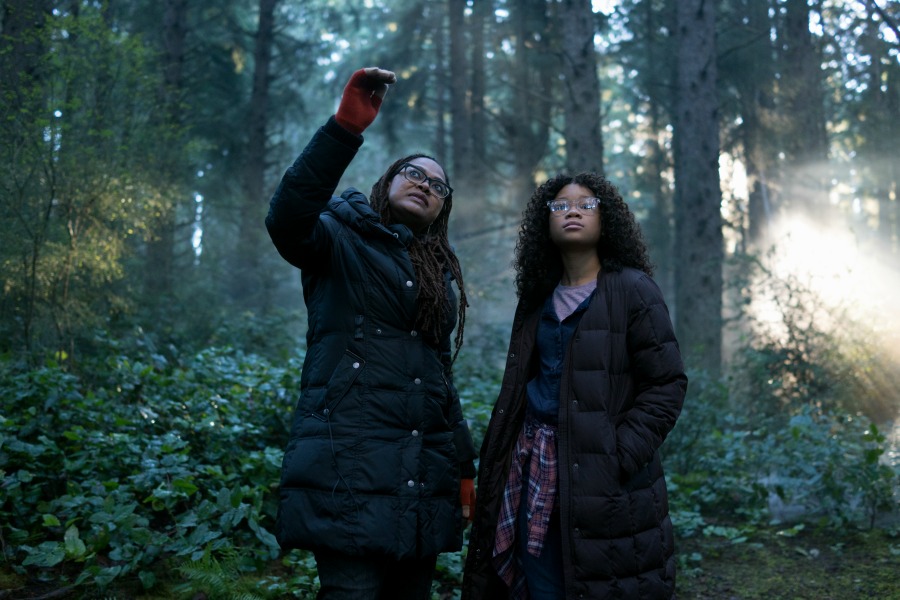
EXCLUSIVE BUZZ
Ava DuVernay on why the next big Disney movie matters: We talked to Ava DuVernay about her upcoming adaptation of A Wrinkle in Time and why it’s such an important movie. Read the exclusive interview here and our set visit report and character guide here.
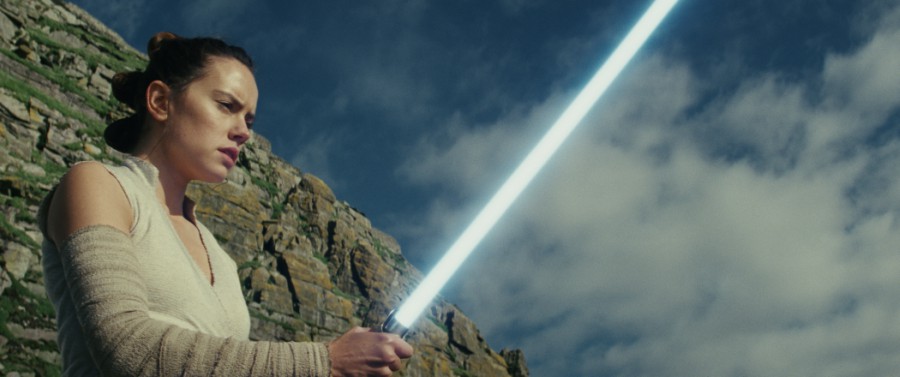
COOL CULTURE
The sound design of Star Wars: The Last Jedi: The latest Star Wars movie has been out in theaters a couple months, and now you can relive one of its best elements thanks to a short ABC News documentary on its sound design. Watch it below.
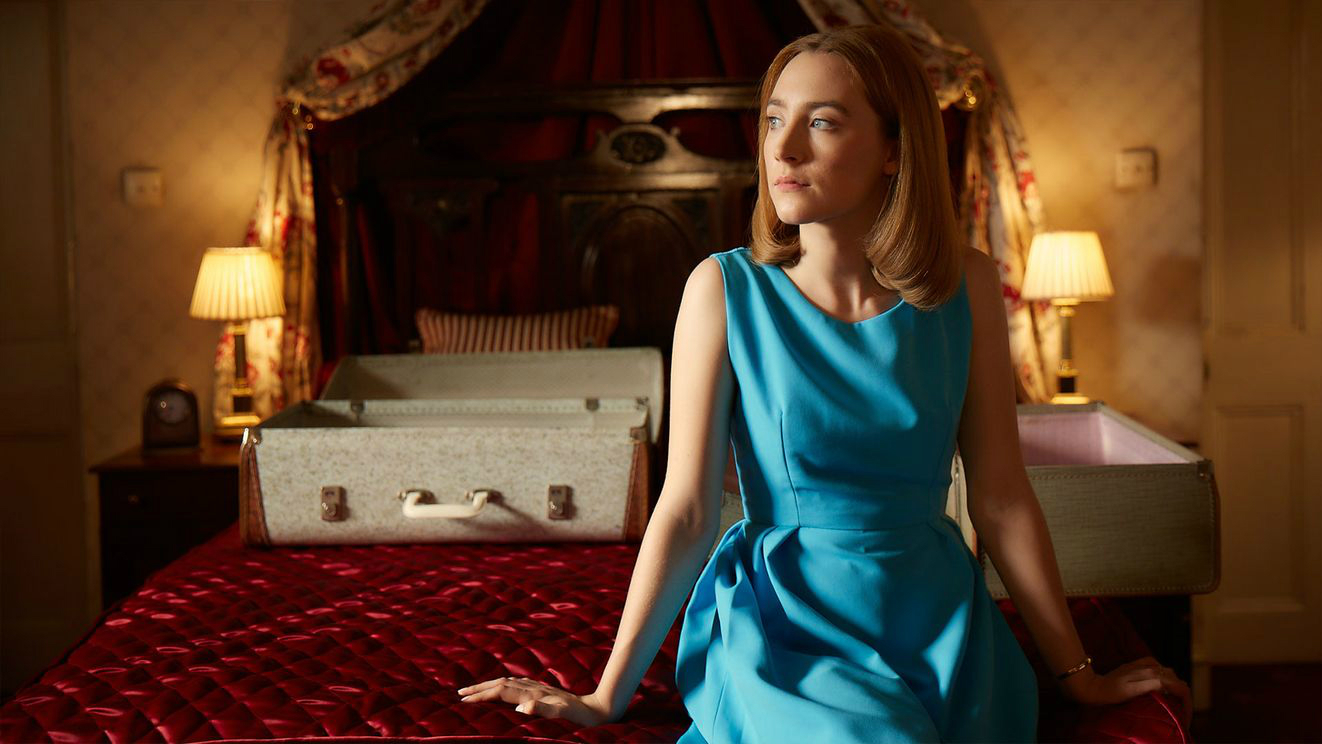
MUST-WATCH TRAILERS
On Chesil Beach delivers a romance in 1960s England: Current Oscar nominee Saoirse Ronan stars alongside Billy Howle in On Chesil Beach, a romantic drama set in 1962 that just dropped its first trailer. Watch it below.
[embedded content]
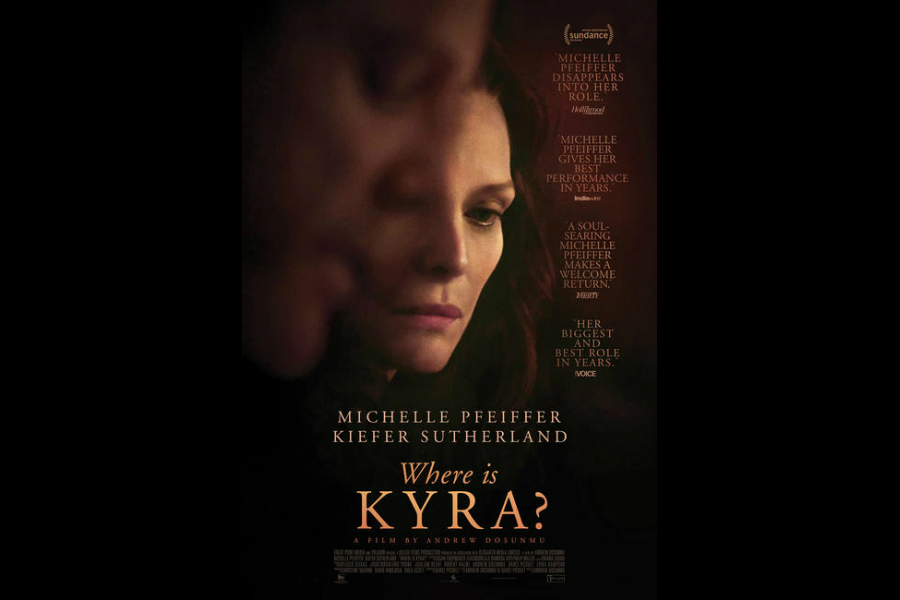
Where is Kyra showcases the talents of Michelle Pfeiffer: The trailer for Where is Kyra, a character-driven drama starring Michelle Pfeiffer, proves why she’s still one of the greatest living actresses. Watch it here:
[embedded content]
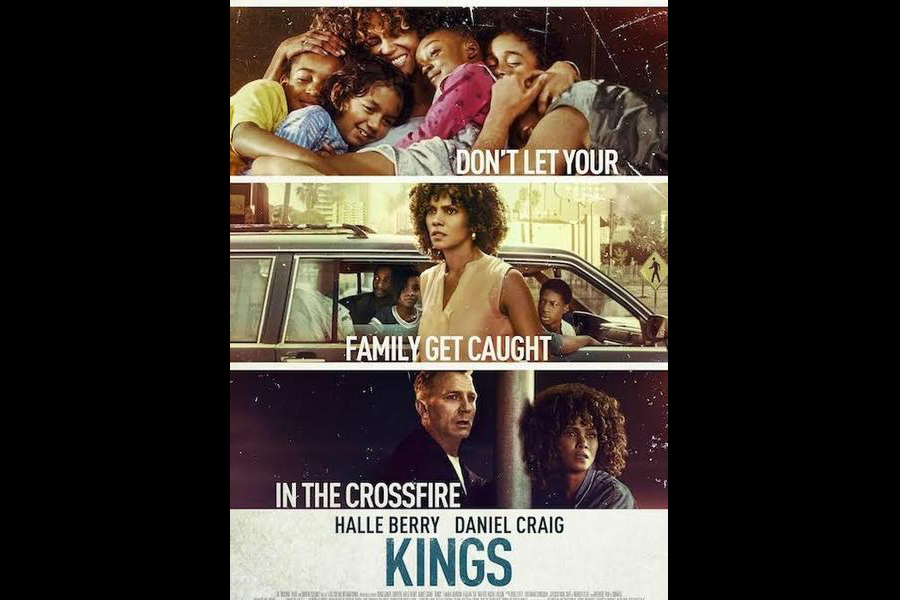
Kings dramatizes the 1992 L.A. riots: The first trailer for the drama Kings, which takes place during the 1992 L.A. riots, features Halle Berry and Daniel Craig as neighbors. Watch it below.
[embedded content]
and
Trump Administration Restricts H-1B Worker Visas Coveted By High Tech
The Trump administration is tightening the rules for companies that contract out high-skilled workers who are in this country on H-1B visas.
The U.S. Citizenship and Immigration Services agency issued a new policy memo on Thursday that requires “detailed statements of work or work orders” about the work that will be performed when an H-1B visa worker is employed at a third-party work site. Employers will have to file more details that support the need for foreign talent.
H-1B visas are controversial. American tech companies use them to hire highly skilled foreign workers, such as engineers, IT specialists, architects among others, in situations in which they say there is a shortage of U.S.-born talent. The visas are good for three years and renewable for another three-year term.
Critics of the visas — 85,000 of which are issued every year — say American workers are aced out of competition with workers who can be paid less.
As CNN reports, “Indian outsourcing firms will be the hardest hit. Indian workers receive more than 70% of all H-1B visas.”
The USCIS memo says that if a visa beneficiary will be placed at one or more third-party worksites, the employer “has specific and non-speculative qualifying assignments in a specialty occupation for the beneficiary for the entire time requested in the petition; and the employer will maintain an employer-employee relationship with the beneficiary for the duration of the requested validity period.”
The memo says USCIS recognizes that visa-holders may wind up earning less money than promised or might perform “non-specialty” jobs when they are contracted out to third-party worksites.
The policy change comes as the Trump administration has signaled its desire to change the visa program with a “Buy American, Hire American” policy outlined in an executive order signed in April 2017. The order promised to root out fraud and abuse in the program.
As the Mercury News reports, the H-1B program has come under intense federal scrutiny.
“A Bay Area News Group report earlier this week found a sharp rise in the number of reviews immigration officials were conducting on H-1B applications. From January to August 2017, the U.S. Citizenship and Immigration Services sent 85,265 requests for evidence in response to H-1B visa applications, a 45 percent increase compared to the same period a year earlier, agency data show. Such requests are made when an application is missing required documents or when the agency determines it needs more proof to decide if a worker is eligible for the visa. Immigration lawyers say the extra enforcement could discourage companies and individuals from seeking an H-1B visa in the first place.”
Experts Say There's Little Connection Between Mental Health And Mass Shootings
President Trump has raised mental health as a key factor in mass shootings, including a call Thursday to create more mental hospitals. But experts say there’s little connection between a person’s mental illness and the likelihood of a mass shooting.
MARY LOUISE KELLY, HOST:
Along with gun control, the link between mental illness and gun violence has been a major focus in the days since the shooting. NRA spokeswoman Dana Loesch put it this way in a CNN town hall this week.
(SOUNDBITE OF ARCHIVED RECORDING)
DANA LOESCH: I don’t believe that this insane monster should have ever been able to obtain a firearm – ever. This individual was nuts.
KELLY: President Trump has repeatedly pointed to mental health as the root of the problem, including yesterday at the White House.
(SOUNDBITE OF ARCHIVED RECORDING)
PRESIDENT DONALD TRUMP: And we’re going to be focusing very strongly on mental health because here’s a case of mental health.
KELLY: President Trump says part of that focus will be keeping guns out of the hands of people with mental illness. Another proposal from the president – opening more mental health institutions. But NPR’s Alison Kodjak reports that doctors and mental health advocates say the link between mental health problems and gun crimes is tenuous.
ALISON KODJAK, BYLINE: The president says the way to stop future school shootings is to identify people with severe mental illness and lock them up.
(SOUNDBITE OF ARCHIVED RECORDING)
TRUMP: So we’re going to be talking seriously about opening mental health institutions again.
KODJAK: And he added…
(SOUNDBITE OF ARCHIVED RECORDING)
TRUMP: We used to have mental institutions. And I said this yesterday. We had a mental institution where you take a sicko like this guy – he was a sick guy – so many signs – and you’d bring him to a mental health institution.
KODJAK: That troubles Bethany Lilly, an attorney with the Bazelon Center for Mental Health Law, because the United States has a dark history of locking people away in psychiatric hospitals.
BETHANY LILLY: We did that for most of American history. And then my organization and civil rights lawyers across the United States and journalists and investigators found out how horrible these snake pits were.
KODJAK: The patients received little mental health care. They were often abused and neglected.
LILLY: Mental health institutions not only imprisoned people who would have what we today call a mental health disability or a mental health diagnosis. They also imprisoned people who simply behaved outside of the norm of society.
KODJAK: So in the 1970s and 1980s, many psychiatric hospitals were closed. The number of patients fell by more than 90 percent. The president isn’t completely alone in suggesting that that went too far. Health policy experts at the University of Pennsylvania wrote in 2015 that there’s a need for more mental asylums, ones that actually provide quality mental health care for people who cannot safely live in the community. But Lilly fears people will once again be locked up not because they pose an actual threat but simply because they carry a diagnosis that others fear.
LILLY: If you talk to any practicing psychiatrist, they will tell you that the risk factors for gun violence are being a young, angry, socially isolated man. Sometimes in the constellation of effects, you will also have people with mental illness.
KODJAK: The Parkland Florida shooter was 19 and by many accounts very isolated. He was referred to police multiple times for violent threats. Matthew Miller is a professor of epidemiology at Northeastern University who has published several papers on the risk factors of gun violence. He says the key ingredient in this mass shooting and others is not mental illness. It’s the guns.
MATTHEW MILLER: The reason for these sort of mass public shootings is not because we have higher rates of mental illness. And it’s not because we have higher rates of violent behavior. We don’t.
KODJAK: The rate of mental health problems in the U.S., he says, is about the same as in Europe. And the same goes for violent crime.
MILLER: But we have much higher rates of violent death because when people try to harm other people, for example, they are much more likely to use guns.
KODJAK: He says if politicians want to reduce mass shootings, they have to deal with the guns. If they want to improve mental health care, they can do that, too.
MILLER: One doesn’t need to invoke homicides in order to say we should be doing a better job trying to treat mental illness and trying to give people access to mental health care. That’s an argument you can make on its own merits.
KODJAK: Alison Kodjak, NPR News.
(SOUNDBITE OF CUL DE SAC’S “BLUES IN E”)
Copyright © 2018 NPR. All rights reserved. Visit our website terms of use and permissions pages at www.npr.org for further information.
NPR transcripts are created on a rush deadline by Verb8tm, Inc., an NPR contractor, and produced using a proprietary transcription process developed with NPR. This text may not be in its final form and may be updated or revised in the future. Accuracy and availability may vary. The authoritative record of NPR’s programming is the audio record.


